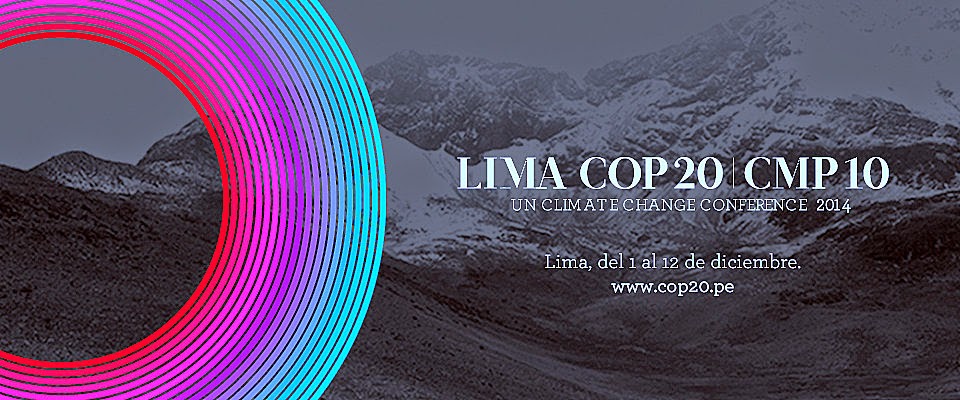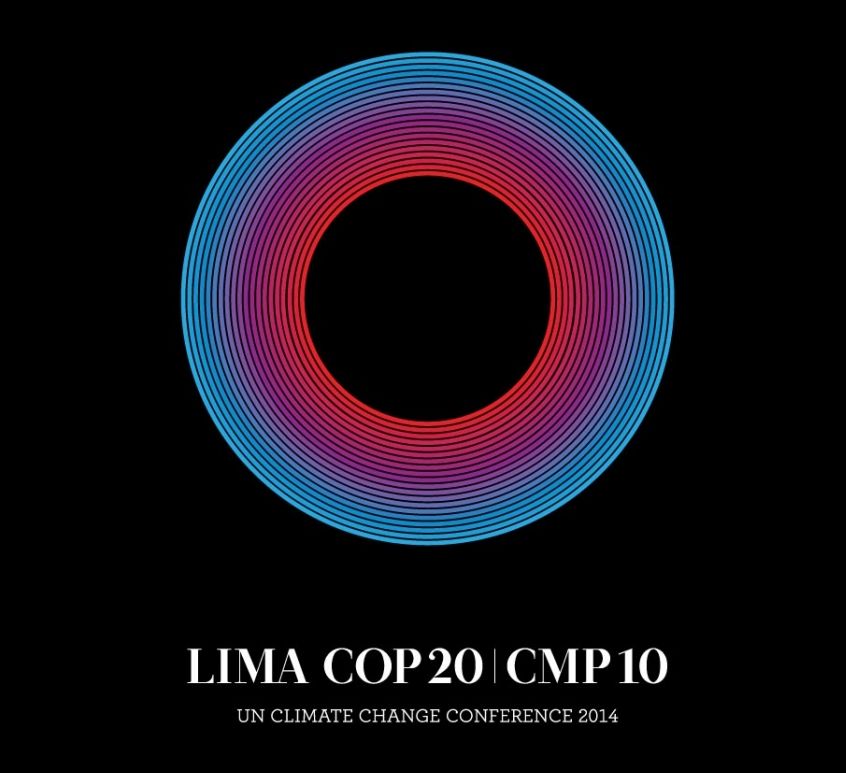There is no time to waste on Climate Change, so I will dive right into this week’s post! According to this United Nations Press Release, the COP 20 climate talks held in Lima, Peru earlier this December were intended to “Build on New York City’s UN Climate Summit of September of 2014” after the #PeoplesClimateMarch. The talks that center around the UN’s Sustainable Development Goals, or SDG’s, seem simple enough when you take a look (Please check them out!). However, they are ideals that run into real world complications from corporate and political interests which often compete with environmental and humanitarian needs. My goal in blogging to you, dear reader, is to summarize how some of these complications relate to 2014’s COP 20 results and the future of international climate negotiation.
According to the UN Press Release, there have been concrete accomplishments that set the stage for next year’s Climate Summit in Paris. Naturally, the UN is going to say positive things about their own conference, so their boastings need to be taken with a few grains of salt.
One such area of contention that seems to be sugar coated is the global commitment to financing the mitigation of climate change. Apparently for the first time ever, total assets of the Green Climate Fund were measured at around $10.2 billion US dollars. This is in response to the pledge of industrialized nations to raise $100bn by 2020 for “concrete mitigation actions“, which was agreed upon in the Cancun Conferences of 2010. Although this sounds like good news, it is still unclear if these industrialized nations are taking mitigation steps seriously. Are they just an effort to look good in front of the World? Is the money really being promised with a legitimate effort at mitigating climate change?
Ahmed Sareer, negotiator for the Maldives, voices his concern in a Guardian article saying, “There has been a clear commitment of $100bn a year but how are we really being offered? Even when they make those pledges how do we know how much is going to materialise? There is no point of knowing that behind the wall there is a big source of funds available unless we can reach it. We are told it is there in a nice showcase, but we don’t get to meet it. We don’t get to access it. These are difficult issues for us.”
Also, the Environment Minister of India, Prakash Javadekar, expressed his disappointment towards the developed nations pledge of $100 billion by 2020:
“We are upset that 2011, 2012, 2013 – three consecutive years – the developed world provided $10bn each year for climate action support to the developing world, but now they have reduced it. Now they are saying $10bn is for four years, so it is $2.5bn”
Although some aspects of the conference seem to be positive at a first glance, many times with UN Climate Conferences there is more to the story. Another self-proclaimed achievement of the COP 20 in Lima notes that many Latin American countries have submitted their carbon emissions measurements. The UN says this data would encourage funding for UN programs like REDD (Reducing Emissions from Deforestation and Forest Degradation) and allow them to sell off undeveloped forest regions for carbon offsetting. And although REDD is widely supported- even by Jane Goodall, who is seen as one of the world’s leading environmental activists- as a good solution to deforestation, there is serious controversy as to whether the organization helps to reduce deforestation and carbon emissions.
Anne Peterson, from the Global Justice Ecology Project, reveals in a Democracy Now! interview that ,“REDD is really — has been designed as a way for — and is being pushed by the United States — as a way for industries and Northern countries, industrialized nations, to avoid actually reducing their emissions at the source. So, countries and companies can continue polluting by saying that they’re protecting forests somewhere else that will supposedly sequester the carbon that they’re putting out into the atmosphere. Unfortunately, there’s absolutely no credible science behind the notion of offsets. So, in fact, what’s going to happen is, because they’re not reducing their pollution, because they’re not reducing their carbon emissions, global warming will continue, which will inevitably damage, destroy and completely eliminate forests.”
But proponents of REDD’s implementation say that it reduces emissions while respecting indigenous rights. Steve Zwick writes in his article in The AnthropoZine that “Indigenous people have traditionally been the best stewards of the forest, and well-run REDD Projects aim to harness this stewardship by partnering with them.”
Others disagree. Chief Ninawa Huni Kui, president of the Federation of the Huni Kui and an indigenous rights activist in Brazil, traveled to Lima for the COP 20 to voice the opposition of 10,400 indigenous Brazilians in 90 villages. In Amy Goodman’s interview, he says, “We are saying that the climate change proposals that the government is tabling here at the United Nations are false solutions to climate change. Specifically, we are here to denounce REDD—R-E-D-D, Reducing Emissions from Deforestation and Forest Degradation.” He states in the same interview that, “The impacts (of REDD) are the following: The community is no longer to fish in their own land, to cultivate food, to practice agriculture. All of these activities are banned and have been declared illegal, and people are jailed if they participate in agriculture or go fishing.”
So basically, the holistic goodness of REDD remains a controversy that is intricately woven with indigenous rights and international policy. Perhaps I will cover this controversy in depth at a later date, so until then, stayed tuned! I hope my words here spark your interest and participation in these climate change debates because they are shaping our future. The climate crisis is dire and needs real action. We at TMSOG want all the good-hearted people in the world to be informed so that hopefully we can have a unified political voice aimed at making the world a slightly better place to live in, if not for us, then for our grandchildren. As Dr. Emanuel Bronner, the magic soap creator, preached, “We are all One, or None!


 By
By